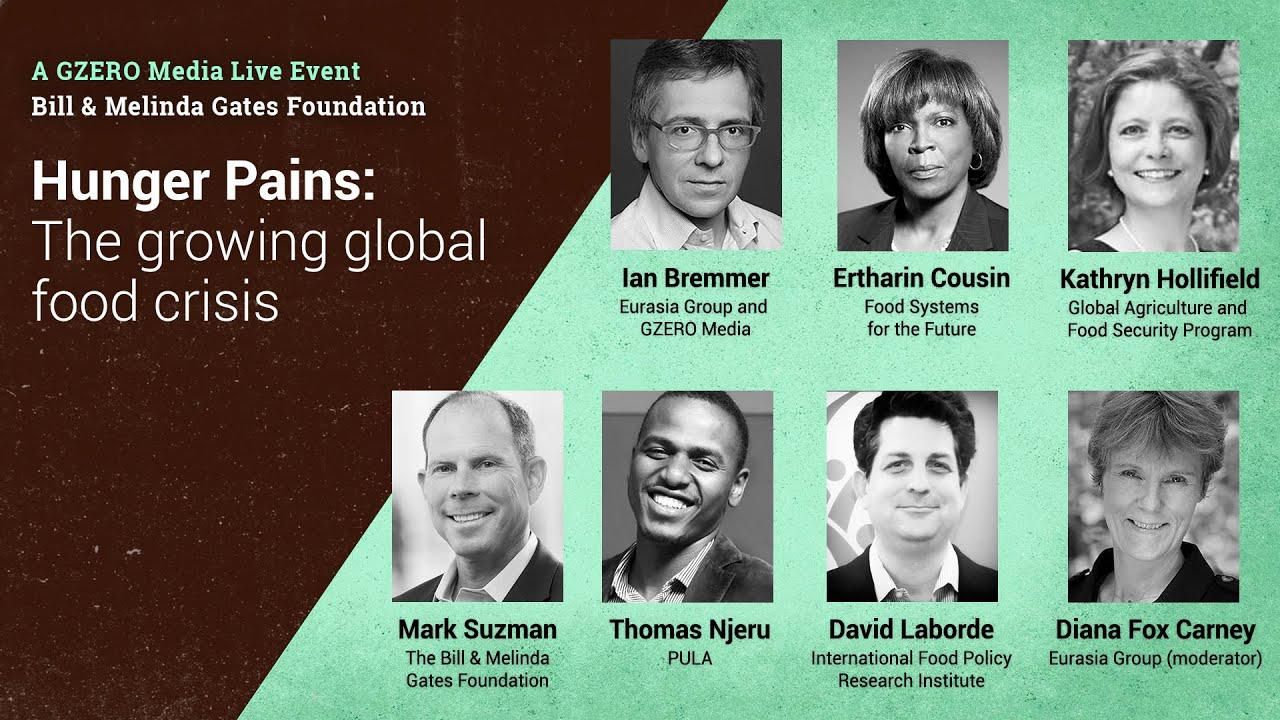
Shortages as a result of Russia's war in Ukraine have aggravated a pre-existing global food crisis that could push a billion people — most of them in the poorest parts of the world — into starvation. It's not just one thing: droughts, COVID-induced supply chain snarls, and high energy prices have all gotten us to this point. And it’ll get worse later on if we don’t find ways to future-proof global food systems.
So, what are we gonna do about it? Several experts weighed in during the livestream discussion "Hunger Pains: The growing global food crisis," hosted by GZERO Media in partnership with the Bill & Melinda Gates Foundation.
Indeed, we are moving toward a long-term scenario in which countries will simply be unable to produce and export as food as they are now, said Mark Suzman, CEO of the Bill & Melinda Gates Foundation. And that's going to have political consequences.
If more people around the world can't get enough to eat, Eurasia Group and GZERO President Ian Bremmer warned that'll erode the very fabric of globalization — the global middle class. What's more, he added, when people get hungrier, they'll get angrier, and less interested in global solutions to their problems, which will, in turn, be reflected in their choice of government.
The magnitude of the challenge is daunting, said Suzman. Just think of the millions of children who'll become stunted from malnutrition, which means their brains will never become fully developed. He thinks the scale and size of the response so far fall far short of what's needed.
Ertharin Cousin, former head of the UN's World Food Programme, noted how the pandemic laid bare the failure of regional food systems to feed everyone, and now of course the war in Ukraine has made everything worse, for instance by slashing the WFP's capacity to supply food to the needy without Ukrainian grains. If we don't completely rethink the ways we produce and distribute food, she said we may soon transition from an affordability crisis to an availability crisis.
For her part, Kathryn Hollifield, from the World Bank's Global Agriculture and Food Security Program, unpacked the systemic challenges that are hurting the odds of meeting the UN's Sustainable Development Goals by the 2030 deadline.
Thomas Njeru, who knows a thing or two about smallholder farming because he grew up on a small farm in his native Kenya before co-founding a micro-insurance firm for smallholders, called for big agribiz to do more to increase the productivity of smallholders so we don't end up with situations like tomatoes costing four times more in Nairobi than in Chicago.
Finally, David Laborde, a research fellow at the International Food Policy Research Institute, predicted that we have already reached peak global food inflation, although prices might rise further at the local level in some countries. He has a very clear message for governments thinking of export bans to address shortages: don't do it, because in the long run it'll hurt your farmers too.
- If we don't act fast to help smallholder farmers, developing world ... ›
- War in Ukraine: cascading impacts on global food supply - GZERO ... ›
- Ukraine and the global food crisis: how bad will it get? - GZERO Media ›
- Why we're in the current food crisis — and who could fix it - GZERO ... ›
- Podcast: Salvaging the world we leave our kids with innovative philanthropy - GZERO Media ›